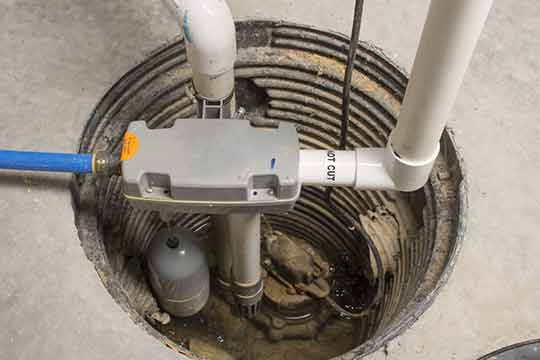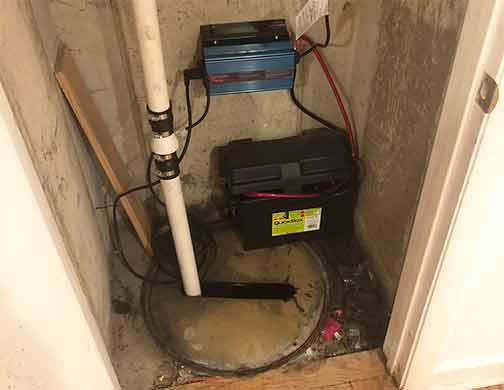
A sump pump is a vital piece of equipment that helps to protect your basement or crawl space from water damage caused by flooding or excessive moisture. It is designed to pump out water that collects in a sump pit, preventing it from causing damage to your home’s foundation or resulting in mold growth.
Regular maintenance of your sump pump is crucial to ensure it functions efficiently and reliably whenever it is needed. By following a few essential maintenance steps, you can keep your sump pump running smoothly and avoid costly repairs or water damage.
1. Test Your Sump Pump Regularly
One of the most important maintenance steps for your sump pump is to test it regularly. This ensures that it is in proper working condition and ready to handle any water accumulation. To test your sump pump, follow these steps:
- Locate the sump pit and remove any debris or obstructions.
- Pour water into the pit until the float switch activates the pump.
- Observe the pump as it removes the water from the pit.
- Ensure that water is being discharged properly from the outlet pipe.
If your pump fails the test, it may indicate a need for repair or a full replacement of your sump pump.
2. Clean and Maintain the Sump Pit
The sump pit is where water collects before being pumped out by the sump pump. Ensuring that the sump pit is clean and free from debris is essential to maintain the proper functioning of your sump pump. Follow these steps to clean and maintain the sump pump and the pit it lies in:
- Regularly inspect the sump pit for any dirt, rocks, or debris.
- Remove any accumulated debris using a small shovel or scoop.
- Ensure that the sump pump’s intake screen is free from blockages.
- Clean the pit walls and remove any slime or mold growth.
By keeping the sump pit clean, you allow the sump pump to work efficiently without any obstructions.
3. Check the Sump Pump Discharge Pipe
The discharge pipe is responsible for carrying the water pumped out by the sump pump away from your home’s foundation. It is essential to regularly inspect and maintain the discharge pipe to prevent any clogs or blockages. Follow these steps to check the sump pump discharge pipe:
- Inspect the discharge pipe for any visible signs of damage.
- Ensure that the discharge pipe is securely connected to the sump pump.
- Verify that the pipe is free from any obstructions or clogs.
- Consider adding a check valve to prevent water from flowing back into the pit.
Regular maintenance of the discharge pipe ensures that water is properly directed away from your home, preventing potential flooding or damage.

Installing a backup battery power system for your sump pump is highly recommended to provide continuous protection.
4. Test the Backup Power System
In the event of a power outage, your sump pump may no longer be able to function, leaving your basement vulnerable to flooding. Having a sump pump backup battery installed is highly recommended to provide continuous protection. Test the backup power system by following these steps:
- Locate the backup power system and make sure it is properly connected.
- Simulate a power outage by disconnecting the main power supply.
- Observe as the backup power system kicks in and powers the sump pump.
- Ensure that the backup power system can sustain the pump for an extended period.
If the backup power system fails the test, contact a professional plumber to address any issues promptly.
5. Schedule Professional Maintenance
While basic maintenance can be performed by homeowners, it is also important to schedule regular professional maintenance for your sump pump. A professional can conduct a comprehensive inspection, ensure all components are functioning correctly, and identify any underlying issues. Professional maintenance includes:
- Cleaning and lubricating the sump pump’s mechanical parts.
- Inspecting the electrical connections and testing the pump’s motor.
- Checking the float switch for proper operation.
- Verifying that the backup power system is in good working condition.
- Addressing any repairs or replacements as necessary.
Professional maintenance helps to extend the lifespan of your sump pump and ensures it is always prepared to handle any water accumulation.
In Conclusion
Maintaining your sump pump is crucial to protect your home from potential water damage. By regularly testing, cleaning, and maintaining your sump pump, you can ensure it is running smoothly and efficiently. Checking the sump pit, discharge pipe, and backup power system, along with scheduling professional maintenance, will provide you with the peace of mind that your sump pump is always ready to protect your basement or crawl space.
Investing time and effort into the essential maintenance steps outlined in this article will save you from the hassle and expense of dealing with a malfunctioning or ineffective sump pump in the future. Keep your sump pump in optimal condition, and it will continue to serve as a reliable defense against water damage for years to come.
[…] your home from water damage. By following the essential steps outlined in this article, you can ensure that your sump pump operates efficiently and reliably when you need it the most. Stay proactive and take the necessary steps to protect your […]